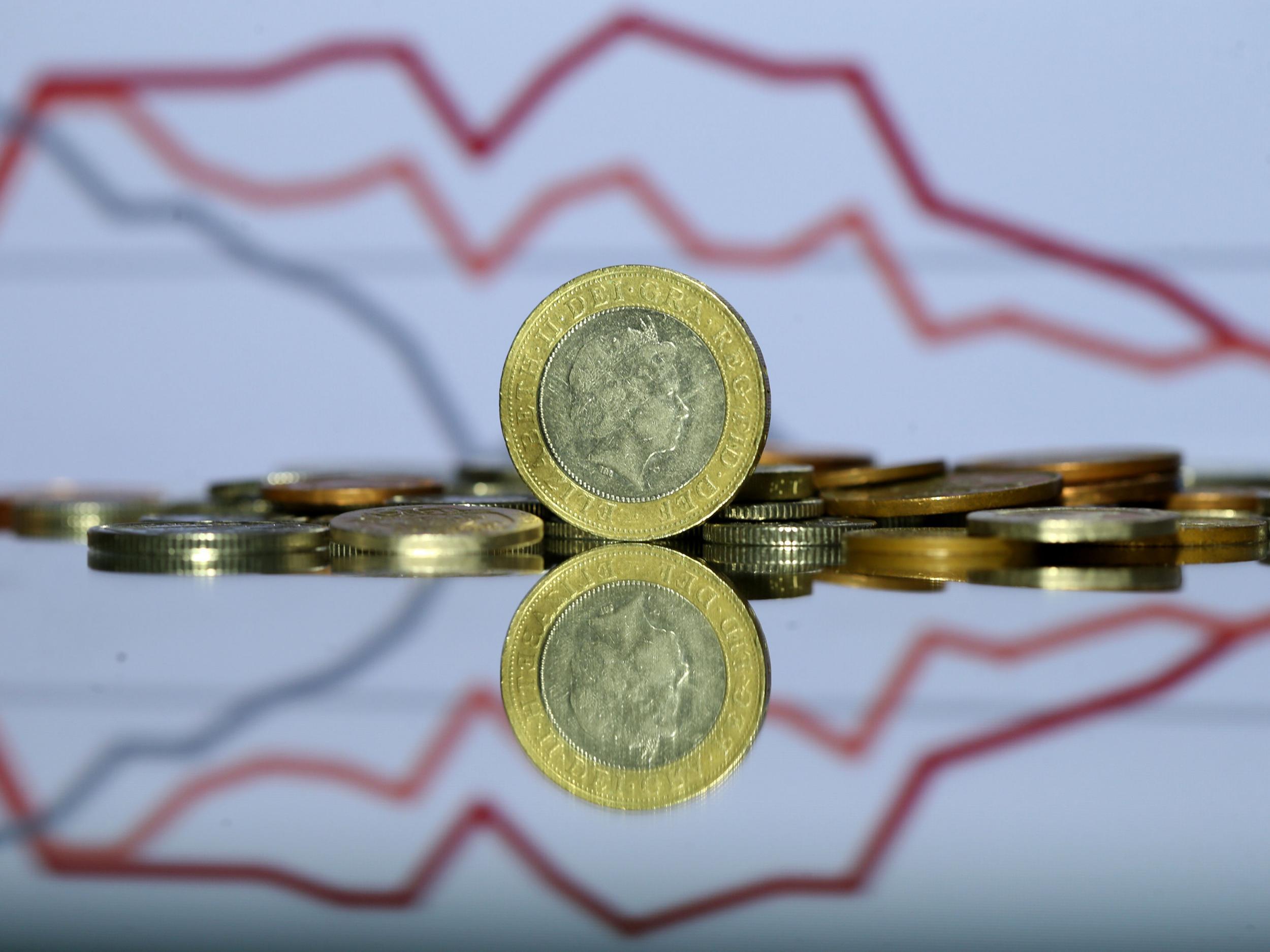Pound sterling slumps against dollar and euro amid cocktail of bad news for UK economy
Weak car sales data and questions over whether the UK economy could handle an interest rate hike have hurt the currency

Sterling tumbled against the dollar and the euro on Thursday after a slew of bad news for the UK economy. The pound fell 0.4 per cent against the single currency to €1.12, and 0.9 per cent against the dollar to $1.31.
The fall came on the back of weak car sales data and questions from ratings agency, Standard & Poors, over the economy’s ability to withstand an interest rate rise. Markets were also weighing increased uncertainty over the future leadership of the Government after Theresa May’s calamitous speech to the Conservative Party conference on Wednesday.
The pound’s weakness gave a slight boost to the FTSE 100, which closed up 0.5 per cent at 7,507.99, as many of its listed multinational stocks generate much of their income in foreign currencies.
Car sales slumped 9.3 per cent in September compared with the same month last year, marking their sixth consecutive month of declines and the first year-on-year fall since 2011.
The Society of Motor Manufacturers and Traders (SMMT) said on Thursday that the decline was cause for “considerable concern”. September is widely seen as the barometer of the health of the UK car market because it marks the first month for new registration numbers.
SMMT chief executive Mike Hawes said business and political uncertainty was hitting consumer confidence and causing people to put off big purchases. “Confusion surrounding air quality plans has not helped”, he added.
The significant drop in sales came despite manufacturers offering buyers thousands of pounds to scrap diesel cars and trade them in for new, more environmentally friendly, models.
“Car sales remain well below last year’s levels, as the inflation-driven squeeze on real incomes makes households reluctant to make major financial commitments,” said Samuel Tombs, chief UK economist at Pantheon Macroeconomics.
The data came after S&P warned that the UK economy may not be able to withstand an interest rate rise, given that recent business surveys had not pointed to a recovery from the weak first half of the year.
Bank of England officials have made signals in recent weeks that rates could be raised at the next Monetary Policy Committee meeting on 2 November.
“All the indications are that it is – in the relatively near term you can expect that interest rates will increase,” The Bank’s governor Mark Carney said last week.
But S&P rejected the reasoning behind a potential rate hike. “We remain a bit sceptical as to how justified such a hike would be in the near term,” the ratings agency said in a research note on Wednesday.
“One rate rise may come in November, but further increases aren’t justifiable given Britain’s weak wage growth. Overall, we believe the Bank and [governor] Mark Carney’s recent statements are primarily aimed at propping up sterling to reduce imported inflation pressures.”
S&P joins fellow ratings agency Moody’s in expressing concerns about Britain’s economic prospects. Last month Moody’s downgraded the UK’s credit rating to Aa2 – its lowest-ever level.
Better-than-expected services sector data earlier on Wednesday offered brief respite from the gloom after a construction industry survey earlier this week by IHS Markit indicated that Britain’s builders are facing a slowdown. The Chartered Institute of Procurement and Supply said a number of projects started before the Brexit referendum came to an end in September and new work failed to materialise amid uncertainty about the future.
The deteriorating outlook indicates that Chancellor Philip Hammond faces a difficult November Budget with the public finances expected to be in a significantly worse state than had previously been predicted
The Treasury’s independent forecaster, the Office for Budget Responsibility, is expected to downgrade its forecast of the UK’s productivity growth on Tuesday, in a move which could wipe out much of the £26bn the Chancellor had set aside last year as a buffer against Brexit uncertainties.
Join our commenting forum
Join thought-provoking conversations, follow other Independent readers and see their replies
Comments